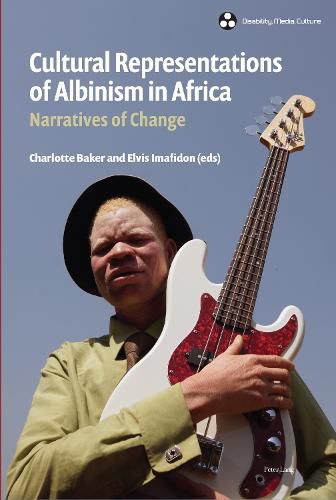Readings Newsletter
Become a Readings Member to make your shopping experience even easier.
Sign in or sign up for free!
You’re not far away from qualifying for FREE standard shipping within Australia
You’ve qualified for FREE standard shipping within Australia
The cart is loading…






This title is printed to order. This book may have been self-published. If so, we cannot guarantee the quality of the content. In the main most books will have gone through the editing process however some may not. We therefore suggest that you be aware of this before ordering this book. If in doubt check either the author or publisher’s details as we are unable to accept any returns unless they are faulty. Please contact us if you have any questions.
<>
(Carli Coetzee, Editor, Journal of African Cultural Studies)
<>
(Ikponwosa Ero, Former UN Independent Expert on the enjoyment of human rights by persons with albinism)
The challenges currently faced by people with albinism in many African countries are increasingly becoming a focus of African writers, storytellers, artists and filmmakers across the continent. At the same time, a growing number of advocates and activists are taking account of the power of cultural representation and turning to the arts to convey important messages about albinism - and disability more broadly - to audiences locally and internationally. This volume focuses on the power of cultural representations of albinism, taking into account their real-world effects and implications. Contributions from academics and albinism advocates range across traditional beliefs, literature, radio, newsprint, the media, film and the arts for public engagement, contending that all forms of representation have an important role to play in building sensitivity to the issues related to albinism amongst national and international audiences. Contributors draw attention to the implications of different forms of cultural representation, the potential of these different forms to open up new discursive spaces for the expression of identities and the articulation or critique of particularly difficult issues, and their potential to evoke far-reaching social change.
$9.00 standard shipping within Australia
FREE standard shipping within Australia for orders over $100.00
Express & International shipping calculated at checkout
This title is printed to order. This book may have been self-published. If so, we cannot guarantee the quality of the content. In the main most books will have gone through the editing process however some may not. We therefore suggest that you be aware of this before ordering this book. If in doubt check either the author or publisher’s details as we are unable to accept any returns unless they are faulty. Please contact us if you have any questions.
<>
(Carli Coetzee, Editor, Journal of African Cultural Studies)
<>
(Ikponwosa Ero, Former UN Independent Expert on the enjoyment of human rights by persons with albinism)
The challenges currently faced by people with albinism in many African countries are increasingly becoming a focus of African writers, storytellers, artists and filmmakers across the continent. At the same time, a growing number of advocates and activists are taking account of the power of cultural representation and turning to the arts to convey important messages about albinism - and disability more broadly - to audiences locally and internationally. This volume focuses on the power of cultural representations of albinism, taking into account their real-world effects and implications. Contributions from academics and albinism advocates range across traditional beliefs, literature, radio, newsprint, the media, film and the arts for public engagement, contending that all forms of representation have an important role to play in building sensitivity to the issues related to albinism amongst national and international audiences. Contributors draw attention to the implications of different forms of cultural representation, the potential of these different forms to open up new discursive spaces for the expression of identities and the articulation or critique of particularly difficult issues, and their potential to evoke far-reaching social change.